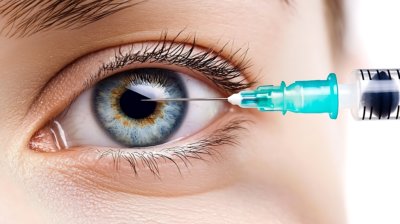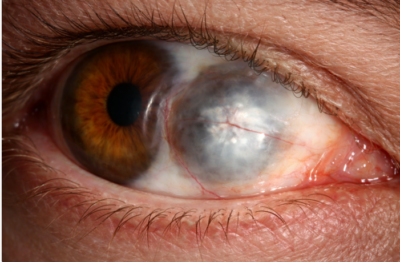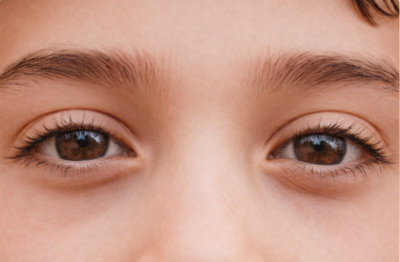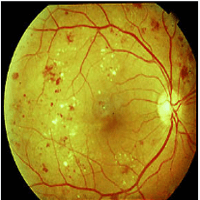Noticing yellow eyes can be alarming, especially when the normally white sclera takes on a yellow tint. This colour change is often a sign of an underlying health condition rather than a simple eye infection.
It can range from mild yellowing to deep discolouration, and understanding the yellow eyes is crucial for proper treatment. This guide explores the causes, symptoms, diagnosis, and management options so you can recognise when to seek timely medical care.
What Causes Yellow Eyes?
The yellow eyes reason is usually related to an excess of bilirubin, a yellow pigment produced during the breakdown of red blood cells. When the liver, bile ducts, or other organs fail to process bilirubin efficiently, it builds up in the blood, causing the sclera to appear yellow.
Jaundice: The Most Common Cause of Yellow Eyes
Jaundice is the leading cause of yellow eyes. It occurs when there is too much bilirubin in the bloodstream, which then deposits in the skin and eyes. In adults, it can result from liver disease, gallbladder problems, or blood disorders.
Newborn jaundice is common in infants due to immature liver function and usually resolves with simple light therapy. Chronic jaundice requires medical investigation to rule out serious underlying disease.
Liver Problems (Hepatitis, Cirrhosis, Fatty Liver Disease, Liver Cancer)
Diseases such as hepatitis, cirrhosis, fatty liver disease, and liver cancer often lead to yellow eyes symptoms. When the liver is damaged, its ability to process bilirubin declines, causing the pigment to accumulate. These conditions can develop gradually and may present alongside fatigue, appetite changes, or abdominal swelling.
Bile Duct Issues (Gallstones, Tumours)
Blockages in the bile ducts from gallstones or tumours can prevent bile from draining correctly. This backup increases bilirubin levels and leads to yellow coloured sclera. Bile duct obstruction may also cause intense abdominal pain, dark urine, and pale stools, indicating the need for urgent medical care.
Blood Disorders
Certain blood disorders, like haemolytic anaemia, increase the breakdown of red blood cells, releasing large amounts of bilirubin. The liver becomes overwhelmed, leading to yellow eyes. These conditions may also present with fatigue, dizziness, and pale skin, requiring prompt diagnosis and treatment.
Pancreatic Disorders
Diseases affecting the pancreas, including pancreatic cancer and inflammation (pancreatitis), can compress the bile ducts and cause jaundice. This often results in both yellow eyes and other systemic symptoms, such as weight loss, pain radiating to the back, and digestive issues.
Medications and Toxins
Some medicines, such as certain antibiotics, anti-tuberculosis drugs, and high doses of paracetamol, can cause liver injury and yellow eyes. Exposure to toxins like alcohol and industrial chemicals may have the same effect.
If you notice a yellow spot in your eye or overall discolouration after starting a new medication, consult your doctor immediately.
Symptoms for Recognising Yellow Eyes
Appetite loss
Loss of appetite can occur alongside yellow eyes, especially when liver or digestive issues are involved. This may indicate impaired metabolism and nutrient absorption, further signalling the need for medical assessment.
Nausea
Persistent nausea with yellow eyes symptoms may suggest serious liver or bile duct issues. It can also be accompanied by vomiting, particularly in acute infections or toxin exposure.
Sudden weight loss
Unexplained and rapid weight loss, when combined with yellow eyes, may be a warning sign of cancers or chronic illnesses affecting the liver, pancreas, or gallbladder.
Unexplained fatigue
Constant tiredness can accompany yellow eyes due to the body’s reduced ability to process toxins and produce energy. This may also indicate anaemia or chronic disease.
Yellow coloured sclera
The most visible symptom is the yellow coloured sclera, which may start subtly and worsen over time. Any persistent discolouration warrants a thorough medical check-up.
How Are Yellow Eyes Diagnosed?
Physical Examination
A doctor will inspect the yellow coloured sclera, skin tone, and other visible signs. They may also check for liver enlargement or tenderness in the abdomen.
Blood Tests
Blood tests measure bilirubin levels, liver enzymes, and blood counts to determine the cause of yellow eyes. These help distinguish between liver disease, blood disorders, and bile duct obstruction.
Imaging Tests
Ultrasound, CT scans, or MRI are often performed to examine the liver, gallbladder, pancreas, and bile ducts for obstructions, tumours, or structural damage.
Liver Biopsy
In cases of suspected liver disease, a liver biopsy may be necessary. This procedure involves taking a small tissue sample to examine under a microscope for inflammation, fibrosis, or cancer.
Treatment and Home Remedies for Yellow Eyes
Hydration
Adequate hydration supports liver and kidney function, helping to flush out toxins that may contribute to yellow eye symptoms.
Balanced Diet
A diet rich in fruits, vegetables, lean proteins, and whole grains can promote liver health and may help in how to cure yellow eyes naturally.
Limit Alcohol
Alcohol can damage the liver and worsen jaundice. Reducing or eliminating alcohol intake is essential for preventing and treating yellow eyes caused by liver disease.
Proper Eye Care
While the discolouration usually stems from systemic causes, maintaining good eye care can prevent secondary irritation or eye infection that might worsen the appearance of the eyes.
Regular Health Check-ups
Routine screenings can detect liver, pancreatic, or blood issues before they cause yellow eyes symptoms. Early detection improves treatment outcomes significantly.
How to Prevent Yellow Eyes
Maintain Liver Health
Prevent liver disease by eating a nutrient-rich diet, exercising regularly, limiting alcohol, and avoiding exposure to harmful toxins or drugs that may harm the liver.
Prevent Infections
Practise good hygiene, get vaccinated for hepatitis, and take precautions against food- and water-borne infections to reduce the risk of yellow eyes linked to infectious causes.
When Should You See an Eye Specialist for Yellow Eyes?
Seek urgent medical attention if yellow eyes appear suddenly, worsen rapidly, or are accompanied by symptoms like severe abdominal pain, dark urine, or significant weight loss. While an ophthalmologist can assess your eye health, a physician or gastroenterologist may be required to address the systemic cause.









